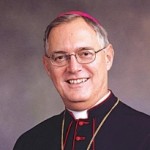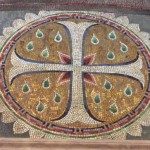As Voltaire said:
‘Repentance for our faults can alone take the place of innocence, and that, to show ourselves repentant, we must begin by declaring them.’ Few Catholic customs have been subjected to greater criticism than that of going to Confession. One can do no better than to initiate this discussion with the sneering comment of George Bernard Shaw to G.K Chesterton after his conversion: ‘Your portly kneeling figure’ in the confessional would be ‘incredible, monstrous, comic.’ More enlightened was Chesterton’s answer: ‘When a Catholic comes from Confession, he does truly, by definition, step out into that dawn of his own beginning… in that brief ritual God has really remade him in His own image. He may be grey and gouty; but he is only five minutes old.’ Wandea (Rick Agon)
Owen at Luminous Mysteries has, as a new Catholic discovered the joys of Confession
C.S. Lewis wrote Surprised By Joy and that little book is most remarkable but if I was to begin one today it would have to be called, Surprised By Confession. Yes. Confession is a joy, it is a light, even as God’s grace prepares us for the Rite of Reconciliation that sacrament prepares us for another, the Eucharist. C.S. Lewis wrote Surprised By Joy and that little book is most remarkable but if I was to begin one today it would have to be called, Surprised By Confession. Yes. Confession is a joy, it is a light…
I have always liked the sacrament of Confession (or, Reconciliation – as it is called post VCII). I liked it when I was a kid, when it was part of the whole mystery of God and supernature and angels. I liked waiting in line, every Saturday, with all of the neighbors – none would dream of receiving Communion on Sunday, of Communing with Christ, without first cleaning their souls. I liked pulling aside the heavy velvet curtains and kneeling in the dark box, waiting for my turn. I could hear the muffled sound of the priest’s voice and I would imagine God up in the clouds, busily talking to an angel or saint on some administrative matter before turning his attention to me, and then the little screen would slide open and I would take a deep breath and begin, “bless me fahda, fer I have sinned…”
I never lost my love for the sacrament, even after my brief “I’m 16 and I know better than everyone including the pope” absence from church. I remember being moved to return, and going to confession to spill it all out and hearing a young priest reassure me. “Although you were denying Christ, he was never denying you…” I needed to hear that. To me, it opened up the whole world.
I’ve had all the usual discussions with my Protestant friends about how “unncessary” a Rite of Confession is, when we can simply talk to Jesus and confess our wrongdoing, and claim forgiveness and mercy and grace. I’ve heard disdainful sneering that we Catholics “put man before Jesus,” by confessing to another faulty human being “instead of going to the source.” And “why do you need someone in persona Christe when you have Christ?”
It’s true that our contrition, brought to Christ, brings forgiveness, but Confession is something else. It’s a very easy thing to confess your sins to yourself and to the Invisible. It’s different to confess your sins to yourself, the Invisible, and to another human being. I think in so doing, you are embracing a bit of humility, you’re naming and owning the sin – “yes, I did it. I kicked the dog. I stole the money. Yes, I screamed at the kids. Yes, I ran a stop sign and then wheedled out of it when the cop stopped me. Yes, I cheated. Yes, I lied. Me. I did it. No, there is no excuse, there are no buts. I did it. I wish I had not.”
And there is something wonderful about the Rite of Absolution – you have to do it to understand. It’s like…”heaven, pour down your waters from above, let the Just One descend. open up O earth, and let the Savior bud forth…” It feels like that.
There is power in naming the sin to another, and in hearing it acknowledged, and the power helps to set you free of it. (I once had a priest listen to me and simply sigh saying, “well, that was a stupid thing to do!” And I could only nod my head and agree. It was a stupid thing to do. You have no idea how enormously helpful I found it to hear someone else acknowledge it, and to fully realize that my behavior was not only sinful but STUPID. Somehow, it made it very easy to never repeat the sin.)
I’ve heard Catholics and non-Catholics talk about “Catholic guilt” and I’ve never understood it. I understand a Catholic conscience, which is one that is aware enough to be bothered by wrongdoing and by sin and wishes to be delivered of it, but I’m not sure what Catholic “guilt” is, because my own experience with Confession is that it expiates guilt.
I once did something of which I was very ashamed – it’s one of those things the psalmist knew about when he wrote “my sin is ever before me…” or at least it felt that way to me, not a proud chapter in my life, so to speak. No matter how many times I approached the issue in Confession I could never quite bring myself to speak the words, to get the whole matter out there. I’d be circumspect, I’d tell one piece of it, one, aspect, but not the other five. While I knew very well that there is no such thing as a sin a priest has never heard of, I simply could not acknowledge to myself the truth of my sin. I knew I was forgiven! I knew the contrition of my heart could only move the Savior to mercy, because he promised us that mercy, and yet I also knew that this thing was going to, in an odd way, own a tiny piece of me forever, until I could speak it. Until then, I knew no prayer would be entirely selfless, no worship would be unsullied or complete.
Understand, it’s not like the thing was pounding in my brain. I wasn’t obsessing, I wasn’t running around feeling oppressed by guilt. I simply knew that I had left something aside, apart, kept from the full offering of myself. Going to Confession had always been, for me, a way of saying, “take all of this, Jesus, here, I’m giving it to you, and you’ll wash me and I will be whiter than snow…” To keep holding back on the full story of my sin was like saying, “I don’t fully trust you with this one…I’m just going to keep this over here to the side, and we’ll pretend it’s not there…” And it’s VERY easy to do that. I had prayed my contrition years before. I knew I was “forgiven.” Why did I need to bring it to confession…after all, my Protestant friends didn’t have to do that! I became quite Ecumenical about it. Still loved Confession, but on this one sin, I was going to take a page from my Assemblies of God pal, and keep it between Jesus and me.
Finally, finding myself in an unfamiliar church during Confession hour I said, “this is it…” I poured it all out to a wonderful friar who listened intently and understood. He spoke consolingly for a few minutes, no big harangue (I know there are bad confessors out there, and shame on them, but I have always been blessed with good priests) and then he said, “Let this be an end…” It was precisely what I needed to hear.
We are body, mind and spirit. Confession – like other Catholic and Orthodox practices – serves not just the soul but the mind, and yes, even the body. Sometimes you need to physically hear it all – the sin, the consolation, the prayer, the absolution. I wonder, sometimes, if the “victim mentality” we have seen grow over the last few decades, and the dependence upon therapists haven’t grown so large, so quickly, simply because so few take understand or take advantage of the release and freedom that comes from the Sacrament of Confession, and the grace the sacrament provides in helping to avoid those sins in the future.
“Maybe it’s not grace,” a secularist friend once suggested to me. “Maybe it’s not that the sacrament confers grace or helps you to avoid a sin in the future; maybe it’s just that you’ve worked a thing out in confession and it no longer has the hold on you. The so-called sin is no longer attractive.”
Okay. That sounds like grace to me.
Speaking of Chesterton – imagine having a newspaper report that you’d made your first confession.
UPDATE: A kind reader sent me a wonderful essay on the subject of confession, written by Patricia Hampl. An excerpt:
I told [the monk] I didn’t even know what confession was anymore. I knew this admission wouldn’t faze him. I produced the little Saint Luke’s style grocery list I had prepared. We both smiled over it. “Maybe you should just talk a little,” he said.
But I didn’t tell my tale. I told him what I wished for, the qualities of heart I lacked and wished were mine. “The sacrament”, he said, as if to himself, though I was aware I had been listened to with absolute attention, “is not really about sin. It is about hardness of heart.” It was a scriptural term, he reminded me-hardness of heart; it referred to the ball of pride and fear and misery that makes freedom so difficult. The sacrament, he said, is about freedom.
[…]
He raised his hand over my bowed head, said the ancient absolving words I knew from Latin: “Ego te absolvo….” Then we parted, he to the monastery, I to the mountain where I stood alone in the late afternoon light, looking out at the rind of America as it peels off into the flourish of the sea, the sky somewhere out there in it all too. The sacrament is not really about sin. It is about hardness of heart.
…A sentence formed in my head-though it felt as if it came not from me but out of the damp air drenched with the smell of eucalyptus: You don’t get to understand, you just get to acquiesce.
The black box had opened, its dank closet revealed itself now as nothing less than the panorama of the glorious world. I stood there, shivering in the growing cold, unable to make out the hinge of sea and sky, glad of that confusion, glad to give over to the mystery at last.
Lovely. And so true.
Matteo at Cartago Delenda Est recalls his first confession.











